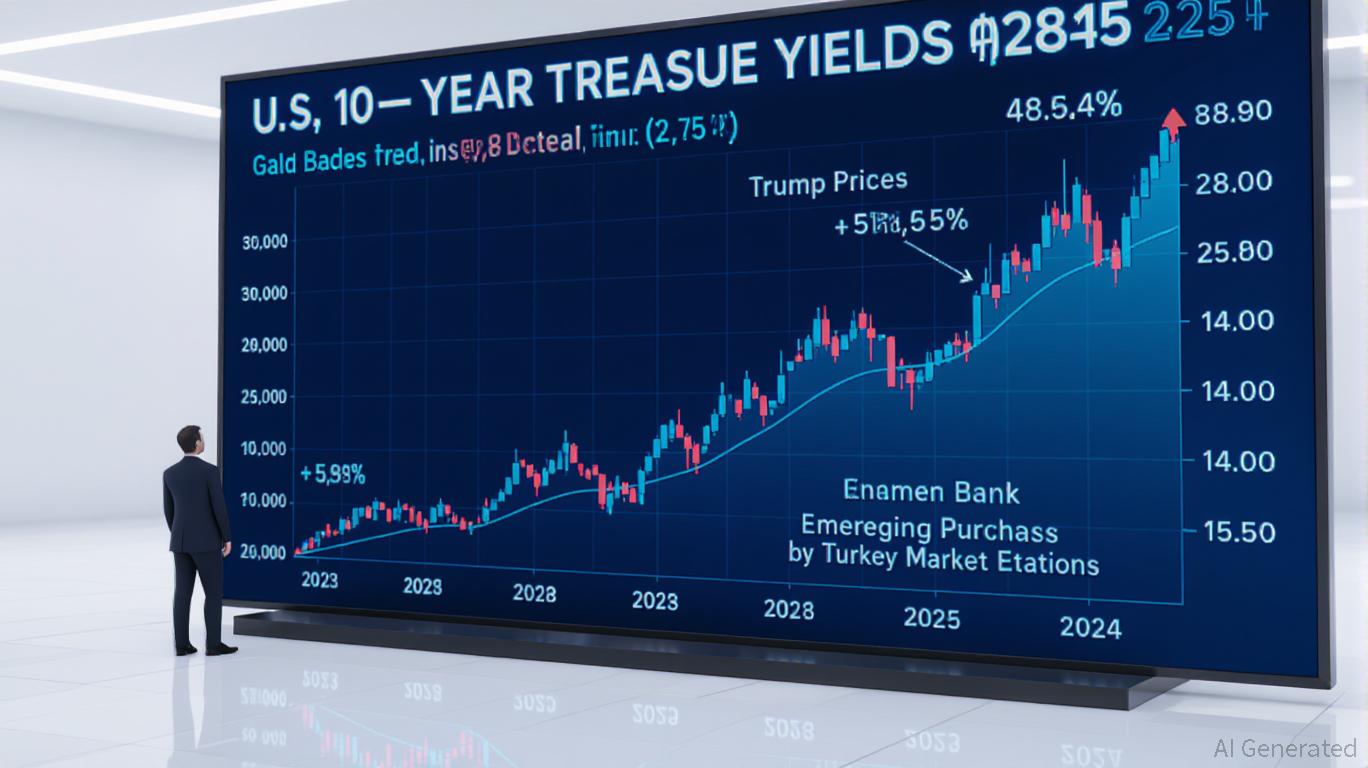
The U.S. Federal Reserve’s independence has long been a cornerstone of global financial stability. Yet recent political pressures—exemplified by President Donald Trump’s attempts to remove Fed Governor Lisa Cook and demand rate cuts—threaten to erode this foundation. Historically, such politicization has led to stagflation, currency devaluation, and asset re-rating, as seen during Nixon-era inflation and Turkey’s lira crisis under Erdoğan [1]. These episodes underscore a critical truth: when central banks lose autonomy, the consequences ripple across markets and economies.
The Inflation-Currency Feedback Loop
Political interference undermines central banks’ ability to anchor inflation expectations. Research shows that even six months of moderate political pressure on the Fed could raise U.S. prices by over 8% within a decade [2]. This occurs because credibility is essential for monetary policy. When investors doubt a central bank’s resolve to combat inflation, they demand higher yields on bonds to compensate for expected purchasing power erosion. The result? Rising 10-year Treasury yields and a decline in U.S. bond demand, as global capital shifts to non-U.S. equities and currencies [1].
Currency devaluation follows naturally. If a central bank cannot independently manage exchange rates, governments may resort to inflationary financing, depreciating the currency. Turkey’s lira, for instance, lost over 40% against the dollar in 2024 amid Erdoğan’s insistence on low interest rates to boost growth [1]. This dynamic is not confined to emerging markets; advanced economies face similar risks when political actors prioritize short-term gains over long-term stability.
Asset Re-Rating and Market Volatility
Politicization also triggers asset re-rating, as investors recalibrate portfolios to hedge against uncertainty. Defensive sectors like healthcare and utilities have outperformed in 2025, while growth stocks—dependent on low-interest-rate environments—have become increasingly volatile [3]. The S&P 500’s CAPE ratio, currently at historically high levels, reflects a market pricing in prolonged macroeconomic instability [3].
Central banks’ interventions during crises further distort asset valuations. For example, expectations of rate cuts to cushion market downturns have inflated asset prices beyond fundamentals, creating feedback loops that amplify bubbles [4]. This is evident in the surge of Treasury Inflation-Protected Securities (TIPS) and gold purchases, with central banks in Asia and emerging markets adding 34% more gold in 2025 alone [1].
Emerging Markets: The Weakest Link
Emerging markets face amplified risks. A 2025 IMF analysis highlights that political interference in these economies exacerbates inflation and volatility, as weaker policy credibility makes monetary policy less effective [3]. For instance, countries reliant on foreign financing see capital flight during crises, compounding currency depreciation. This was evident in 2024, when Turkey’s lira devaluation triggered a cascade of capital outflows from other EMs [1].
The Path Forward
Preserving central bank independence requires institutional safeguards. The European Central Bank’s 2025 lecture by Christine Lagarde emphasized that while de jure independence has grown, de facto independence is increasingly under threat [5]. Strengthening governance, transparency, and accountability—particularly during political crises—is essential to maintaining credibility. Investors, meanwhile, are diversifying into short-duration bonds, non-U.S. equities, and commodities to mitigate risks in a “higher-for-longer” rate environment [3].
The stakes are clear: without independent central banks, global financial stability hangs in the balance. As history and current trends demonstrate, the cost of politicization is not just inflation or currency devaluation—it is a systemic erosion of trust in the institutions that underpin modern economies.
**Source:[1] Central Bank Independence Under Threat: Implications for Asset Market Re-Rating and Policy Analysis [https://www.ainvest.com/news/central-bank-independence-threat-implications-asset-valuations-global-financial-stability-2508/][2] Could Trump take control of the Fed? Experts say the risks [https://www.bankrate.com/banking/federal-reserve/what-trump-firing-fed-governor-lisa-cook-means-for-you/][3] Assessing the Impact of Political Pressures on the Fed’s Independence on Fixed Income and Equity Markets [https://www.ainvest.com/news/assessing-impact-political-pressures-fed-independence-fixed-income-equity-markets-2508/][4] Central bank intervention and financial bubbles [https://www.sciencedirect.com/science/article/pii/S1059056024000510][5] Central Bank Independence in an Era of Volatility [https://www.ecb.europa.eu/press/key/date/2025/html/ecb.sp250127~16c35af0c0.en.html]
